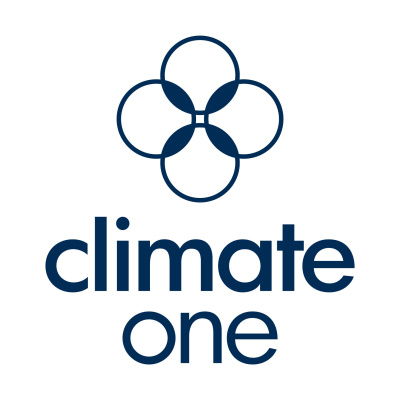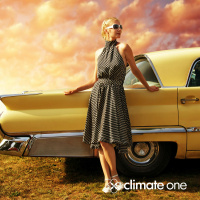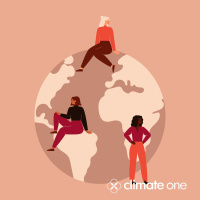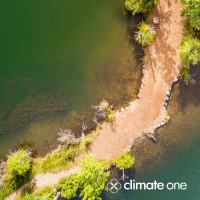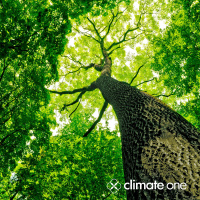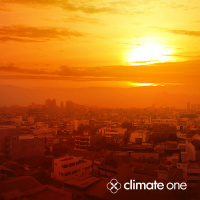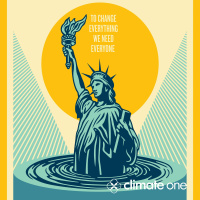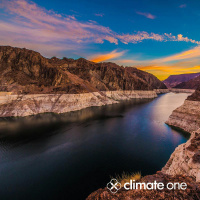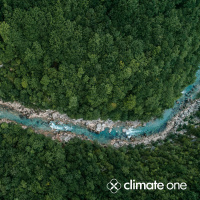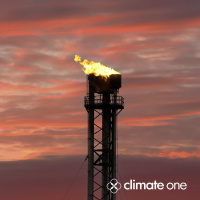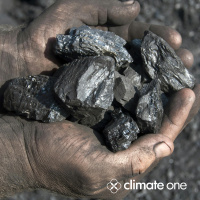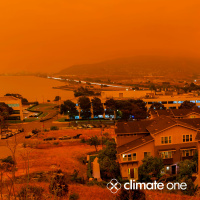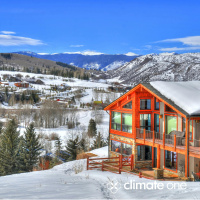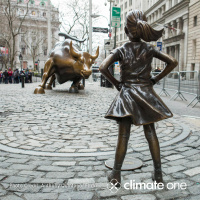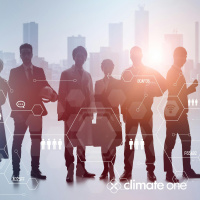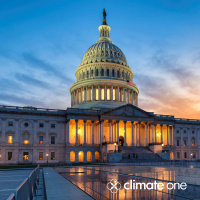Sinopsis
Greg Dalton is changing the conversation on energy, economy and the environment by offering candid discussion from climate scientists, policymakers, activists, and concerned citizens. By gathering inspiring, credible, and compelling information, he provides an essential resource to change-makers looking to make a difference.
Episodios
-
How a Manufactured Car Culture Blocks Transit
23/07/2021 Duración: 01h02minThe United States is famous for its car culture. But a hundred years ago, pedestrians didn’t want cars to take over the streets — and it took decades of pressure and lobbying by car companies to make them feel otherwise. Today, traffic jams, maintenance and pollution make cars more like the cigarette no one wants to quit. Urban areas have grown up and spread out along ever widening highways with parking spaces required for each new building, further entrenching the car into our lives and choking cities with smog. Public transit holds tremendous possibilities for reducing our transportation emissions while better moving people through cities. But there’s a lot to overcome when trying to change the mobility model in most American cities, starting with the lack of good public transit and the high costs of construction. How can we make good public transportation work in America? Guests: Peter Norton, associate professor of history at the University of Virginia; author of Fighting Traffic and Autonorama Eric Goldw
-
REWIND: A Feminist Climate Renaissance
16/07/2021 Duración: 54minPathways for reducing carbon emissions include electrifying transportation and replacing fossil fuels with wind and solar power. But in this time of national reckoning on racial and economic disparities, there is growing support for a more holistic approach. This view holds that the climate crisis won’t be resolved until we first address the systemic imbalances that have fueled it – racism, capitalism, white supremacy and patriarchy. In their recent book, All We Can Save: Truth, Courage and Solutions for the Climate Crisis, co-editors Katharine Wilkinson and Ayana Elizabeth Johnson bring together the voices of women artists, writers and change-makers who are at the forefront of climate action. “The work that we’re doing is instigating or nurturing a feminist climate renaissance,” says Johnson, “which is what we feel the climate movement so desperately needs right now.” Guests: Ayana Elizabeth Johnson, marine biologist Katharine Wilkinson, Vice President, Project Drawdown Co-editors, All We Can Save:Truth, Cou
-
Mark Carney, Fatih Birol and the Narrow Path to Net Zero
09/07/2021 Duración: 55minWhen we think of action on climate change, we usually think of what individuals can do, what governments can do, and maybe what businesses can do. But what about the broader economic levers that affect behaviors? Can we get companies to walk away from billions of dollars they’ve already invested in a fossil fuel-based economy? Insurers are on the front lines of climate disruption; it’s their business to put a price on risk. So how can the financial and insurance sectors create better-aligned incentives for companies, businesses and even governments to get on the ever-narrowing path to net zero carbon emissions before it’s too late? Guests: Mark Carney, UN Special Envoy on Climate Action and Finance Fatih Birol, executive director of the International Energy Agency Learn more about your ad choices. Visit megaphone.fm/adchoices
-
Clearing the Air on Carbon Offsets
02/07/2021 Duración: 55minFor over two decades, carbon offset programs have promised individuals and businesses that they can reduce their overall carbon footprint by paying someone else to reduce their carbon emissions. Yet many programs have been plagued by scandal – like shady accounting and paying forest owners not to cut down trees they weren’t planning to log anyway. A new nonprofit called Climate Vault wants to buy emissions permits from regulated markets and lock them away so other polluters can’t buy and use them. Will this finally be an approach that works? Or are all carbon offset programs just smoke and mirrors? Learn more about your ad choices. Visit megaphone.fm/adchoices
-
Extreme Heat: The Silent Killer
25/06/2021 Duración: 56minExtreme heat causes more deaths than any other weather-related hazard in the U.S., wreaking quiet havoc on the health and economic well-being of billions of people across the world. But it’s rarely given the same billing or resources as other, more dramatic, natural disasters. Because of racist and discriminatory housing and development practices, extreme heat also disproportionately impacts poorer and minority communities. Recognizing a growing need for local responses to a global problem, the mayors of Miami-Dade, Athens, Greece and Freetown, Sierra Leone recently announced they are appointing the world’s first Chief Heat Officers. How can we prepare for and address the impacts of extreme heat? Learn more about your ad choices. Visit megaphone.fm/adchoices
-
Shepard Fairey, Mystic and the Power of Art
17/06/2021 Duración: 54minFrom activism to political campaigns to corporate advertising, the power of music and images is undeniable. So how can the arts inspire and advance the climate conversation? For more than three decades, Shepard Fairey’s work has provoked thought and controversy in the art and political spheres. Now, with a public weary of climate charts and apocalyptic images of melting glaciers and emaciated polar bears, we explore how the arts can provoke a more productive conversation with Fairey and Grammy-nominated hip hop artist Mystic. Please consider making a tax-deductible donation to support our work. Go to climateone.org/donate to help us reach our goal of $10,000 by July 1. Learn more about your ad choices. Visit megaphone.fm/adchoices
-
Colorado River Reckoning: Drought, Climate and Equal Access
11/06/2021 Duración: 56minThe Colorado River supplies water to more than 40 million people across seven states. Lake Mead has fallen to its lowest level since it was filled in the 1930s, which could trigger the first stage of real water cutbacks. For years, “much of the discussion in the Colorado River Basin has been who gets the next drop,” says journalist Luke Runyon. “The conversation very recently has shifted to who has to use less.” In the midst of long-term drought, warming temperatures and decreasing runoff, water managers are gearing up for the next round of negotiations to divvy up the Colorado River’s supply in the future. Tribal water users are hoping to have a bigger say in those basin-wide negotiations, and to finally correct an historic injustice by ensuring universal access to clean water for tribes. Please consider making a tax-deductible donation to support our work. Go to climateone.org/donate to help us reach our goal of $10,000 by July 1. Learn more about your ad choices. Visit megaphone.fm/adchoices
-
Finding the Heart to Talk About Climate
04/06/2021 Duración: 54minEver have a difficult conversation about climate? Pretty much everyone has. Knowing all the facts and figures only goes so far when talking to someone who just doesn’t agree. So how do we break through the barriers? Scientists trained to present information in a one-way lecture format face a particular challenge: they first need to unlearn old habits. “Everybody's trying to figure out ‘how do we move past this idea that just arming people with facts will lead to a better world,’ right, because we’ve just seen that that’s absolutely not true,” says Faith Kearns, author of Getting to the Heart of Science Communication. Kearns argues that we all need to move from an “information deficit” model of communication – where it’s assumed that the audience simply needs more information – to a relational model, where the science communicator does as much listening as talking in order to first find empathy and common ground. Learn more about your ad choices. Visit megaphone.fm/adchoices
-
Should Nature Have Rights?
28/05/2021 Duración: 58minIf corporations can be legal persons, why can’t Mother Earth? In 2017, New Zealand granted the Whanganui River the full legal rights of a person. India also recently granted full legal rights to the Ganges and Yamuna rivers, and recognized that the Himalayan Glaciers have a right to exist. In 2019, the city of Toledo passed the Lake Erie Bill of Rights with 61 percent of the vote, but then a year later, a federal judge struck it down. As Lindsey Schromen-Wawrin, an attorney who represented Lake Erie, explains, the problem stems from a 500-year history of Western property law. Our legal system grants rights to property owners, but not to property itself. “If we’re treating ecosystems as property, then ultimately, we as property owners have the right to destroy our property and that fundamentally has to change,” Schromen-Wawrin says. Rebecca Tsosie, a law professor focused on Federal Indian law and Indigenous peoples’ human rights, says there are other rights frameworks to consider. “If we go into Indigenous
-
Hot Cities, Methane Leakers and the Catholic Church
21/05/2021 Duración: 55minMapping has emerged as a powerful tool for helping humans combat climate disruption. Technology for measuring the totality of global carbon emissions, for example, is highly refined: we know that half of all the carbon pollution humans have dumped into the sky has happened in just the last three decades. But understanding the specific sources of those emissions at the scale of factories or communities has been more elusive. Riley Duren, CEO of Carbon Mapper, has said, “you can’t manage what you can’t measure.” Carbon Mapper, a public-private partnership that includes universities and NASA’s Jet Propulsion Lab and is backed by philanthropists, uses satellites to pinpoint super emitters of both CO2 and methane in real time with the goal of reducing emissions. But this isn’t the only technology that may point the way toward a better understanding of climate threats and potential solutions. The Catholic Church, for example, holds vast tracts of land across the globe. But until Molly Burhans came on the scene, th
-
Journey of a Former Coal Miner
14/05/2021 Duración: 54minWhat motivates the activists? Grassroots activism can take many forms, from protests to letter-writing to citizen science to community organizing. But these often more local forms of activism can get short shrift compared to the more powerful, national players in climate and environmental movements. Nick Mullins, a former fifth-generation coal miner, grew up seeing multiple generations of his family endure hardships created by our nation’s demand for cheap coal. In search of decent pay, he became a miner himself – but he eventually left the industry in search of justice for his mountain communities. James Coleman started his career as a teenage climate activist before becoming the youngest elected public official in California in over 100 years. San Francisco activist Marie Harrison fought against environmental contamination of her community by the U.S. Navy and a fossil-fuel-burning power plant – and now her daughter, Arieann Harrison, has picked up her mantle to continue pushing for environmental justice.
-
Climate Stories We Tell Ourselves
07/05/2021 Duración: 54minHow do our identities and values shape the way we listen to others’ climate experience? Author Nathaniel Rich and journalist Meera Subramanian cover the hopes, fears, and middle-of-the-night concerns affecting the people living closest to climate change. In Georgia, farmers were convinced that climate is a political issue — until too-warm winters began upending the Peach State’s prized crop. In a wealthy Los Angeles suburb, an invisible methane gas leak caused outrage and hysteria for local residents concerned about personal health and property values — but not the climate. “I think we've all gotten really used to telling our stories, putting them out there in the world, and it sometimes feels like maybe not so many people are actually listening to them,” Subramanian says. “And so I think sometimes showing up as a journalist and just being all ears can feel kind of profound.” Guests: Nathaniel Rich, Author, Losing Earth; Second Nature Meera Subramanian, Environmental Journalist Have you ever had a difficult
-
Distorted Democracy and the “Zero-Sum Game”
30/04/2021 Duración: 53minIn the US, we’ve become accustomed to climate – like nearly everything else – being politicized. Even when potential solutions might benefit everyone, a zero-sum mentality has taken hold where there’s an “us” and a “them” and progress for them comes at the expense of us. “Racism in our politics and policymaking is distorting our ability to respond to big problems and to advance collective solutions,” says political strategist Heather McGhee. But does it have to be this way? Can we look to the UK and elsewhere for a different model? Is it even possible to make the whole planet a winner? Guests: Heather McGhee, Political Strategist & Author, The Sum of Us: What Racism Costs Everyone and How We Can Prosper Together Rebecca Willis, Researcher & Author, Too Hot to Handle? The Democratic Challenge of Climate Change We have been nominated for a Webby! Please give us your vote as the Best Science and Education Limited Series in the 25th Annual People's Voice Award below: https://vote.webbyawards.com/PublicVoting#/2
-
Living with Climate Disruption
22/04/2021 Duración: 54minGuests: Tamara Conry, Camp Fire survivor Julia Fay Bernal, director of Pueblo Action Alliance Britt Wray, postdoctoral researcher at Stanford University focused on the intersection of mental health and the climate crisis The impacts of climate change may come fast or slow. A wildfire amplified by drought may rip through a town in a matter of hours, or rising seas may take years to destroy a neighborhood. Health impacts may show up in months, or take the form of devastating cancer rates that rise over a decade. Regardless of speed or intensity, the climate emergency will impact us all. How do we live alongside climate disruption? This story is part of Covering Climate Now, a global journalism collaboration strengthening coverage of the climate story. Related Links: Pueblo Action Alliance Eco-anxiety and Gen Dread We have been nominated for a Webby! Please give us your vote as the Best Science and Education Limited Series in the 25th Annual People's Voice Award below: https://vote.webbyawards.com/PublicVotin
-
REWIND: Billionaire Wilderness
16/04/2021 Duración: 55minFor many of us, the story of the American wilderness begins when Europeans arrived on these shores and began conquering it. The wide open spaces of the American West loom large in our country’s mythology. But what often gets written out is the history and culture of those native societies who were here to begin with — and whose relationship to this land is very different. And while one-percenters have contributed generously to preserve and protect the pristine wilderness they love, the people who work for them are often struggling, working two or three jobs. How are public and private land interests competing in the American West? Can conservation and recreation coalesce in a way that is inclusive of all communities? Guests: Dina Gilio-Whitaker, American Indian Studies Lecturer, California State University San Marcos Justin Farrell, Author, Billionaire Wilderness: The Ultra-Wealthy and the Remaking of the American West (Princeton University Press, 2020) Diane Regas, President and Chief Executive Officer, Th
-
Investing in a Clean and Equitable Recovery
09/04/2021 Duración: 53minSpeakers: Julian Brave NoiseCat, Vice President of Policy and Strategy, Data for Progress Julie Pullen, Director of Product, Jupiter Intelligence Alicia Seiger, Managing Director, Sustainable Finance Initiative, Precourt Institute for Energy, Stanford University The COVID-19 shutdown has hit women and minorities hardest: four times as many women as men dropped out of the workforce in September 2020, with Latina and Black women seeing the highest levels of unemployment. The Biden Administration’s COVID recovery plans promise to prioritize climate and equity alongside economic growth—can those values carry over to a post-pandemic workforce that doesn’t leave anyone behind? “The solutions to climate expand far beyond simple carbon math,” says Alicia Seiger of Stanford University. How will climate resilience be built into America's economic recovery? Related Links: The American Rescue Plan Data for Progress Jupiter Intelligence Precourt Institute for Energy The All We Can Save Project Waterfront Alliance Learn
-
Entrepreneurs Creating an Inclusive Economy
02/04/2021 Duración: 54minGuests: Sandra Kwak, CEO and Founder, 10Power Donnel Baird, CEO, BlocPower Andreas Karelas, Author, Climate Courage: How Tackling Climate Change Can Build Community, Transform the Economy, and Bridge the Political Divide in America Summary: As the spring of 2021 arrives, it would be hard to design a more challenging — or more promising — moment for implementing climate solutions. Americans are reeling from an economic shutdown that’s pushed many out of the workforce, and widened the gap between the wealthy and the poor. In this brave new post-Covid world, can President Biden step up where Obama couldn’t? “I'm delighted about what I'm seeing from the Biden-Harris team,” notes Donnel Baird, CEO of BlocPower. “Climate justice and racial equality are wedded together alongside employment, alongside public health and working our way out of these kinds of four simultaneous crises we’re dealing with.” From big tech to clean energy, what are the opportunities for scaling new solutions — and where do inequity and pol
-
Weird Winters
26/03/2021 Duración: 53minWarmer, shorter winters may sound like an impact of climate change that would inspire more joy than despair. But rising temperatures and decreasing snowpack won’t just transform water supplies and species ranges. It will also disrupt a multi-billion dollar winter sport industry, including the jobs and local economies associated with them. “If we're not able to ski or snowboard anymore,” says Mario Molina, CEO of Protect Our Winters, “the least of our concerns will be the activities that we participate in.” So how are winter sports enthusiasts and others preparing to weather the storm? Speakers: Elizabeth Burakowski, Assistant Professor, Earth Systems Research Center, University of New Hampshire Kit DesLauriers, National Geographic Explorer; Skimountaineer Geraldine Link, Director of Public Policy, National Ski Areas Association Mario Molina, CEO, Protect our Winters Related Links: Protect Our Winters Higher Love: Climbing and Skiing the Seven Summits National Ski Areas Association Learn more about your ad
-
When Words Aren’t Enough: The Visual Climate Story
19/03/2021 Duración: 53minGuests: Céline Cousteau, Explorer and Filmmaker Davis Guggenheim, Director, An Inconvenient Truth; Founder, Concordia Studio Cristina Mittermeier, National Geographic Photographer; Co-Founder, SeaLegacy While IPCC risk assessments and emission projections can help us understand climate change, they don’t exactly inspire the imagination or provoke a personal response to the crisis. But a growing league of storytellers is using photographs, films and the human experience to breathe life into the cerebral science of climate change and conservation. “It's not the blockbuster, big-splash film,” says explorer and filmmaker Céline Cousteau, “It's truth, it’s intimacy, and some of it is ugly and some of it is beautiful.” So how far can images and sound go to inspire a global climate response? Related Links: He Named Me Malala My Octopus Teacher SeaLegacy Tribes on the Edge Learn more about your ad choices. Visit megaphone.fm/adchoices
-
The Political Reality of Climate Action
12/03/2021 Duración: 52minTrue to his campaign promise, President Biden dove right into the climate crisis on Day One, signing a stack of executive orders that signaled his determination. But how effective are they? “Executive orders, I think, are often very splashy when they're introduced, and they get a lot of attention,” notes Axios reporter Ben Gemen. “I think the better way to look at an executive order is sort of firing a starting gun for an extraordinarily long race.” But while he faces certain blowback from Republicans in Congress, there are signs that when it comes to conservative thought, the wind may be changing. What can the Biden Administration accomplish using existing authority? How much will conservatives and businesses step in and step up on climate? Guests: Rep. Kathy Castor (D-FL), Chair of House Select Committee on the Climate Crisis Rich Powell, Executive Director, ClearPath Ben Geman, Energy Reporter, Axios For complete show notes, visit our website. Learn more about your ad choices. Visit megaphone.fm/adchoices
